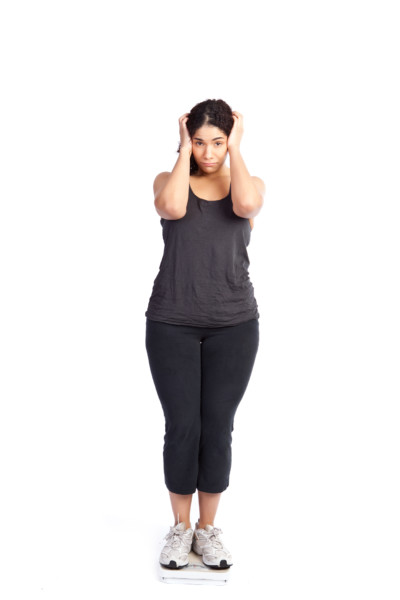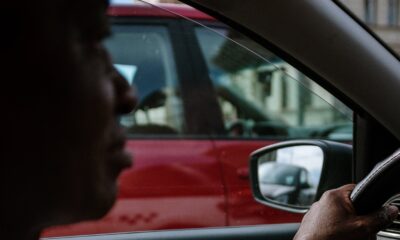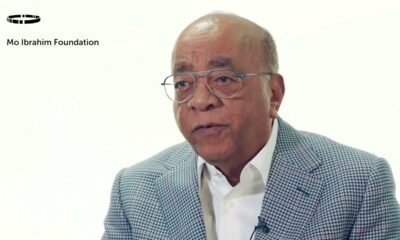Features
Chidinma Eke: It’s Okay to Not Be Okay
Nigeria does not have an adequate social welfare system to take care of its people. Your rent will still be due when it ought to be – regardless of how your finance has been impacted by the pandemic. You and yours still need to eat and the cost of staple foods has skyrocketed,
For those of us who still have to go to work (essential workers), there’s the fear that you are putting yourself at risk daily. There’s the fear that you’re exposing your loved ones by exposing yourself. You’re conflicted between duty and self-preservation.
In all of this, it’s okay to not be okay.
 A few days ago, I had a cold; my chest and head hurt badly, my throat was sore and my nose ran intermittently. In light of the current situation, I wondered if I could have been in contact with anyone who could possibly have the virus. However, because we have learned that the virus is transmittable, even when you are asymptomatic, I couldn’t be sure.
A few days ago, I had a cold; my chest and head hurt badly, my throat was sore and my nose ran intermittently. In light of the current situation, I wondered if I could have been in contact with anyone who could possibly have the virus. However, because we have learned that the virus is transmittable, even when you are asymptomatic, I couldn’t be sure.
So I took some painkillers and medications for cold. It’s been a few days and I’m better. In interacting with people, I’ve realised that there are quite a lot of people with similar symptoms that ‘look’ like COVID-19. A lot of people are even afraid to speak up about their symptoms for fear of being stigmatized. My dear, we are in the rainy season and the weather is cold; so many people have the flu. Some have also imagined the COVID-19 symptoms even when they don’t have the common cold.
Then there’s the mental health implication of COVID-19. There are those who have to live with their abusers – my heart goes out to them. I have seen a few NGOs and CSOs reach out, asking to be contacted as necessary. If you qualify for this, please reach out.
There are those who had pre-existing mental health issues and the current situation cannot be easy on them. At the very basic, for people who need some form of order in their lives, the disruption to their daily lives, livelihoods, routine and all will not be easy.
Then there are those who are alone at this time. I cannot imagine the difficulty of having to be indoors, all alone.
On the flip side, there is also the fact that some ‘regular’ families were able to coexist because they were not in each other’s space 24/7. Funny as it may seem, this will also be a difficult time for those. News out of China is that the divorce rate has increased as a result of the lockdown. Indeed, for some, this is a difficult time to be alone while for others, it’s a difficult time to not be alone. Whatever side of the divide you fall on, remember that it is okay to not be okay.
Beyond the physical and mental health implications, there’s the economic impact of all this. Many have lost their sources of livelihood already, many will – post lockdown. All over the world, economies are wobbling and it’s affecting everyone. Many organisations were unable to pay salaries for the month of March, many will not be able to pay April’s. Nigeria has a large number of SMEs, petty business people who absolutely need to hustle daily to put food on the table. Having them locked down cannot be easy on them.
I know someone reading this is saying- where there’s life, there’s hope, health is wealth, keep an open mind, and all that. I agree. All the positive words don’t mean everything is going to be fine and dandy. For some, it will. For others, it will not. Truth is – the world as we know it will change post-COVID-19 pandemic and it’s okay to be anxious about what the future brings. It is possible to acknowledge the peculiarity of the times and still stay positive. We shouldn’t sweep our feelings under the carpet of positivism.
Although we want to believe that after this lock down, we should have been able to flatten the curve, identify all positive cases and people can go back to their business as usual, we still are not sure if the shutdown will extend beyond the initial two weeks. Other nations have been on it for months and aren’t sure of when life will return to normal.
As an employer or employee, a function head or a team member, this cannot be easy on anyone. If you’re wondering if you will get paid at the end of this month or worried about how to pay your staff, your fears are valid.
Nigeria does not have an adequate social welfare system to take care of its people. Your rent will still be due when it ought to be – regardless of how your finance has been impacted by the pandemic. You and yours still need to eat and the cost of staple foods has skyrocketed,
For those of us who still have to go to work (essential workers), there’s the fear that you are putting yourself at risk daily. There’s the fear that you’re exposing your loved ones by exposing yourself. You’re conflicted between duty and self-preservation.
In all of this, it’s okay to not be okay.
I don’t have any answers, but here are some tips that might get us through this:
- Acknowledge the situation for what it is. It’s totally out of anyone’s control; we are all just trying to find our way through it. Nobody has it figured out, including those sharing beautiful videos.
- Keep a healthy mind, read and meditate. Your mind is your greatest asset, so feed it with positive thoughts, books, and meditation.
- Rest, relax, unwind, play. Listen to music and see some movies.
- Talk to someone – a therapist, trusted friend or family. Just stay connected
- Exhale: There’s are lots of content out there for entertainment, pick and choose what works for you and lose yourself in it for a while.
- Strategise for a comeback: The lockdown will be lifted eventually. Make plans to resume your normal routines, prepare for post-COVID-19.
- Learn a new skill: You can learn any and everything online and some are free. Use your data wisely and upskill yourself.
- Eat healthily and drink water: Adding weight is a major concern in this period. Lol. Eat healthily, practice social distancing from your fridge (or the kitchen). Drink water, not sugary or alcoholic drinks, exercise and generally try to stay active. Don’t be a couch or bed potato (like me on days when I don’t go to work). Haha.
- Stay healthy through this period, wash and sanitise your hands, don’t touch your face, don’t self-medicate.
- Stay home if you don’t absolutely need to go out. Don’t spread the disease further, help by not pressuring an already strained/ inadequate health system. The disease doesn’t spread – we spread it.
Special thanks to our health workers; from the security personnel to the janitors to the admin staff, doctors, nurses, etc. We see you, we appreciate you. Our appreciation also goes to other members of society working to keep the world going at this time – the food and pharmaceutical manufacturing and trading businesses, the supermarkets and street shops, the fast-food restaurants and the roadside buka. The downstream petroleum products, the law enforcement agents – we see you all, we appreciate you.






















